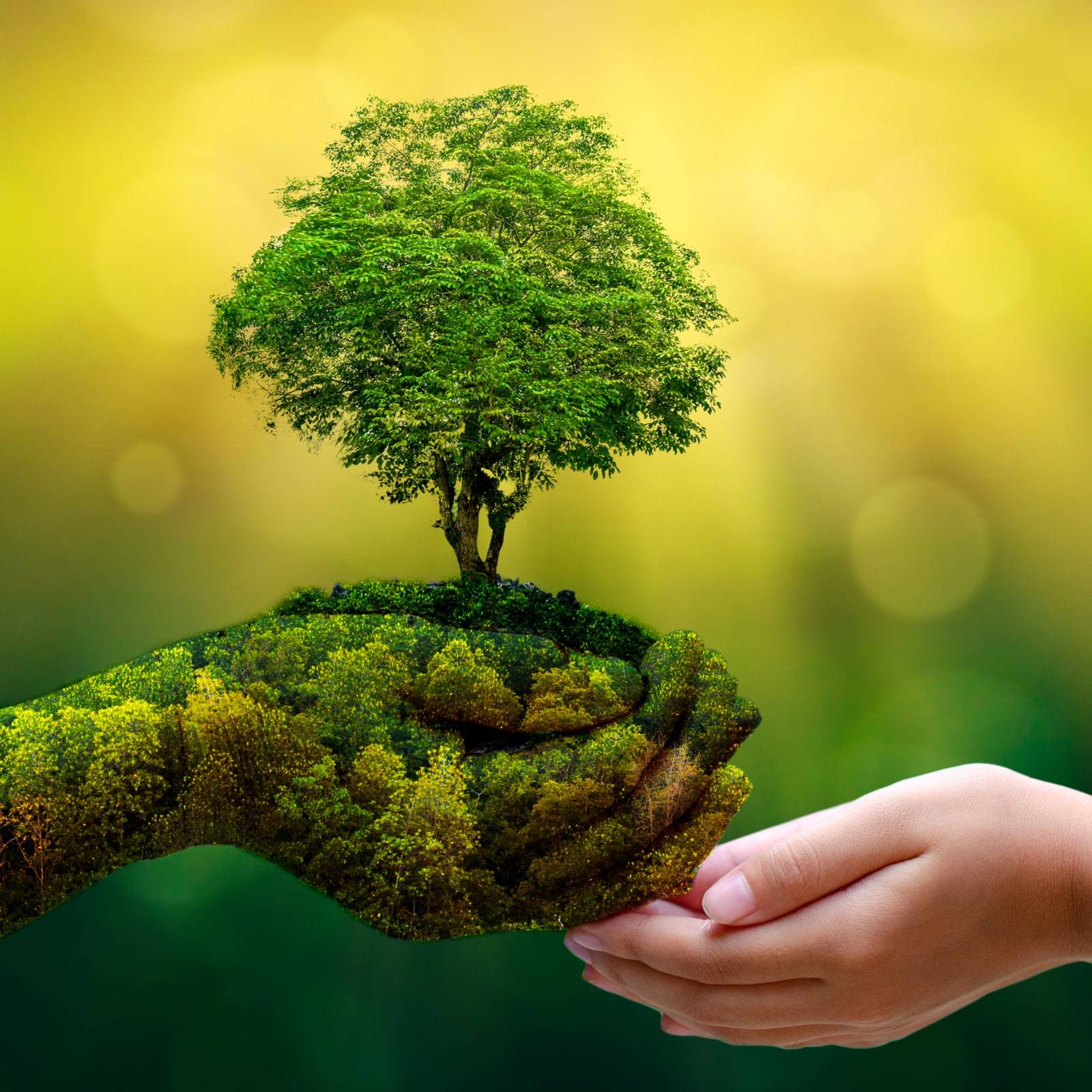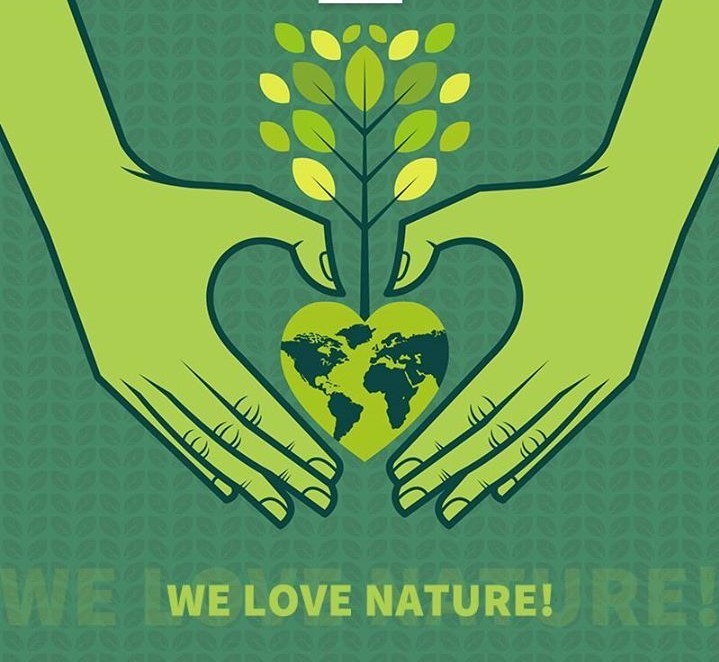SATHYA CHIMALAMARRI
"Reduce, reuse, recycle."
POINTS TOTAL
- 0 TODAY
- 92 THIS WEEK
- 1,038 TOTAL
participant impact
-
UP TO233milestraveled by foot
-
UP TO233milesnot traveled by car
-
UP TO2,283pounds of CO2have been saved
-
UP TO112single-use bagsnot sent to the landfill
-
UP TO31advocacy actionscompleted
-
UP TO2.0community eventshosted or attended
-
UP TO2.0hoursvolunteered
-
UP TO5.0treesplanted
-
UP TO805minutesspent learning
SATHYA's actions
Biodiversity + Wildlife
Use Reusable Bags
Plastic bags can be mistaken for food by many wild animals and can end up in habitats that harm wildlife. I will not accept any disposable bags when making purchases, including produce bags.
Climate + Air
Declutter My Home Without the Landfill
Each day, I will learn about responsible ways to dispose of items and de-clutter, clean, donate, repurpose or recycle unneeded items in my home to make sure that what I get rid of doesn't go into the landfill.
Freshwater + Oceans
Go Plastic-Free
Millions of tons of plastic is produced each year worldwide. Each day, I will conduct a plastics audit of what I buy and use throughout the challenge (kitchen, bathroom, personal care products, etc.), to see how single-use plastic shows up in my life. I will find plastic-free alternatives to these products and advocate for alternatives to single-use packaging at local grocery stores, product manufacturers, at work, or on campus.
Action Track: Community
SIGN UP TO RECEIVE NEWS ON SUSTAINABILITY AT EMERSON
I will sign up to the Sustainability Aficionados distribution list to receive global news on sustainability at Emerson, including world news and Greening OF, BY, and WITH news.
Action Track: Community
JOIN OR CREATE A GREEN TEAM AT EMERSON
I will continue to contribute to Emerson's environmental sustainability goals beyond April by learning more about the Global Green Teams Network, joining a team near me, or maybe even creating a new team.
Biodiversity + Wildlife
Seek Alternative Gifts and Souvenirs
When traveling, I will seek souvenirs that support local communities and do not cause harm to the environment or wildlife.
Action Track: Community
Volunteer in my Community
I will volunteer 10 hours in my community.
Action Track: Community
TAKE PICTURES AND SHARE ON LINKEDIN
I will take at least one photograph that is connected with this year's theme of Nature Conservation & Biodiversity (for example an urban park, bee hives, birds and other animals...) and I will post it on LinkedIn with the hashtags #EarthMonthEcochallenge #EarthMonthAtEmerson.
Action Track: Community
ATTEND THE ECOCHALLENGE CONSERVATION WEBINAR
On Wed 24th April, I will attend the Earth Month Ecochallenge Webinar on Conservation to learn about what individuals, companies and other organizations can do to promote biodiversity and nature protection.
Climate + Air
Stay on the Ground
Carbon emissions from air travel is harmful to planetary and human health. Instead of traveling by plane, I will find an alternative way to accomplish the goals of an upcoming trip (i.e. telepresence, vacation locally).
Biodiversity + Wildlife
Invest in Nature
A healthy world needs both our daily actions and support from larger systems. I will spend 120 minutes learning about how I can use my investments and savings to advance environmental sustainability.
Biodiversity + Wildlife
Plastic in Clothing and Water
Synthetic clothing can contain plastic and shed harmful microplastics into our water. I will use a microplastics catcher in my laundry, or install a microplastics filter for my washing machine.
Biodiversity + Wildlife
Save the Bees
Bees are vital to ecosystems. To help save the bees, I will learn which local flowers provide nectar and plant them in my backyard or in a pot on my balcony.
Climate + Air
Choose Renewable Energy
Renewable energy options are becoming more widespread and accessible. Not only are they good for the planet, they can help save money as well. I will sign up for my utility company's clean/renewable energy option. If my utility does not offer one, I will contact them to advocate for this option in the future.
Climate + Air
Use Muscle Power
I will cut my car trip mileage by only taking necessary trips, and I will only use muscle-powered transportation for all other trips.
Land + Forests
Choose Eco-Friendly Wood and Paper
Trees provide food and habitat for local wildlife species, shade our streets and homes, and help keep our air and water clean by capturing pollutants. Buying products that help protect forests makes a difference. I will only purchase wood, furniture, and paper products from ecologically certified sources such as Forest Stewardship Council.
Land + Forests
Zero Waste Day
The impacts of our waste are far reaching. I will create zero waste for an entire day and share my reflections and learnings on the feed.
Land + Forests
Carry My Trash
I will carry all of my unrecyclable, non-compostable trash with me this month, to raise my awareness of how much I send to the landfill. I will post on the feed my reflections, conversations, and actions I will take moving forward.
Freshwater + Oceans
Reduce Pollutants in Cleaning
Understanding cleaning product ingredients and their effect on water and biodiversity is helpful to our consumer choices. I will spend 120 minutes learning about how cleaning products affect our water and try making my own cleaning products to reduce pollutants.
Freshwater + Oceans
Low Water Gardening
Grass lawns are water-intensive and on average require about 30 percent of a household’s water consumption. Native plants are water-efficient and help maintain the balance and diversity of local ecosystems. I will plant native species with water-efficient plants to conserve water and improve the habitat, then post a photo on the feed to share.
Action Track: Community
Share My "Why"
I will record a video to share why I am taking action this Earth Month, a sustainable swap I've made, and/or a local conservation effort in my area.
Action Track: Community
Plant Trees
Trees capture carbon and produce oxygen that is essential to life on earth. I will support this important piece of nature by organizing or joining a community group to plant 12 native trees in my community, public parks, office location, campus or backyard.
Action Track: Community
Borrow Before I Buy
Why buy something I will only use once or a few times if someone nearby has it for me to borrow, and why not share something I have that someone may only need a few times a year? To reduce my consumption and waste, I will create or support the sharing economy with friends, family, colleagues or neighbors.
Action Track: Community
Join a Cleanup Effort
I will organize or participate in a trash pickup at a local river, beach, or natural body of water.
Action Track: Community
Sustainability Lunch and Learn
Learning in a social setting can inspire connection and change. I will work with a friend or colleague to plan and host a lunch and learn at work, school, in my neighborhood or other location to learn more about an environmental topic important to me. After the lunch and learn, I will share more about it on the feed.
Participant Feed
Reflection, encouragement, and relationship building are all important aspects of getting a new habit to stick.
Share thoughts, encourage others, and reinforce positive new habits on the Feed.
To get started, share “your why.” Why did you join the challenge and choose the actions you did?
-
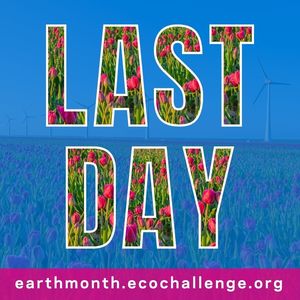 SATHYA CHIMALAMARRI 4/29/2024 10:48 PM“It is our collective and individual responsibility to protect and nurture the global family, to support its weaker members, and to preserve and tend to the environment in which we all live.”
SATHYA CHIMALAMARRI 4/29/2024 10:48 PM“It is our collective and individual responsibility to protect and nurture the global family, to support its weaker members, and to preserve and tend to the environment in which we all live.”-
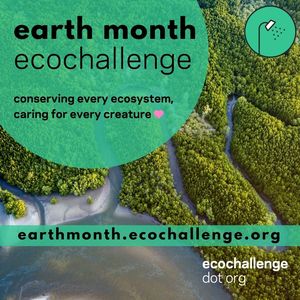 AKHIL MANDALAPU 4/29/2024 10:56 PMGreat!!
AKHIL MANDALAPU 4/29/2024 10:56 PMGreat!!
-
-
 SATHYA CHIMALAMARRI 4/28/2024 11:41 PMEvery species, every ecosystem, every mountain and every sea are part of Earth's intricate web of life. Let's protect it all
SATHYA CHIMALAMARRI 4/28/2024 11:41 PMEvery species, every ecosystem, every mountain and every sea are part of Earth's intricate web of life. Let's protect it all-
 AKHIL MANDALAPU 4/29/2024 10:57 PMGood!!
AKHIL MANDALAPU 4/29/2024 10:57 PMGood!! -
 SATHYA CHIMALAMARRI 4/29/2024 10:49 PMThanks
SATHYA CHIMALAMARRI 4/29/2024 10:49 PMThanks -
Ram Teja 4/29/2024 3:31 AMWell Said!!!
-
-
 SATHYA CHIMALAMARRI 4/28/2024 11:34 PM“It is our collective and individual responsibility to protect and nurture the global family, to support its weaker members, and to preserve and tend to the environment in which we all live.”
SATHYA CHIMALAMARRI 4/28/2024 11:34 PM“It is our collective and individual responsibility to protect and nurture the global family, to support its weaker members, and to preserve and tend to the environment in which we all live.”-
 AKHIL MANDALAPU 4/29/2024 10:58 PMWell said!!
AKHIL MANDALAPU 4/29/2024 10:58 PMWell said!!
-
-
 SATHYA CHIMALAMARRI 4/27/2024 9:38 PM“You cannot get through a single day without having an impact on the world around you. What you do makes a difference, and you have to decide what kind of difference you want to make.”
SATHYA CHIMALAMARRI 4/27/2024 9:38 PM“You cannot get through a single day without having an impact on the world around you. What you do makes a difference, and you have to decide what kind of difference you want to make.” -
 SATHYA CHIMALAMARRI 4/26/2024 5:02 AMThe future of our planet is in our hands. Let's make it a green one
SATHYA CHIMALAMARRI 4/26/2024 5:02 AMThe future of our planet is in our hands. Let's make it a green one-
 AKHIL MANDALAPU 4/29/2024 10:59 PMGood motivation to everyone!!
AKHIL MANDALAPU 4/29/2024 10:59 PMGood motivation to everyone!!
-
-
 SATHYA CHIMALAMARRI 4/24/2024 3:13 AM“We are the first generation to feel the impact of climate change and the last generation that can do something about it.”
SATHYA CHIMALAMARRI 4/24/2024 3:13 AM“We are the first generation to feel the impact of climate change and the last generation that can do something about it.” -
 SATHYA CHIMALAMARRI 4/22/2024 9:36 PMGlobal climate change has typically occurred very slowly, over thousands or millions of years. However, research shows that the current climate is changing more rapidly than shown in geological records. On a global scale, patterns of vegetation and climate are closely correlated. Vegetation absorbs CO2 and this can buffer some of the effects of global warming. On the other hand, desertification amplifies global warming through the release of CO2 because of the decrease in vegetation cover.
SATHYA CHIMALAMARRI 4/22/2024 9:36 PMGlobal climate change has typically occurred very slowly, over thousands or millions of years. However, research shows that the current climate is changing more rapidly than shown in geological records. On a global scale, patterns of vegetation and climate are closely correlated. Vegetation absorbs CO2 and this can buffer some of the effects of global warming. On the other hand, desertification amplifies global warming through the release of CO2 because of the decrease in vegetation cover.-
 AKHIL MANDALAPU 4/29/2024 11:00 PMGood information
AKHIL MANDALAPU 4/29/2024 11:00 PMGood information -
 SATHYA CHIMALAMARRI 4/29/2024 10:49 PMThanks
SATHYA CHIMALAMARRI 4/29/2024 10:49 PMThanks -
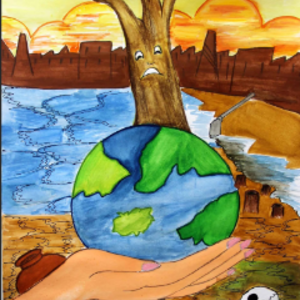 Arjun Kumar 4/23/2024 9:04 PMNice!!!
Arjun Kumar 4/23/2024 9:04 PMNice!!!
-
-
 SATHYA CHIMALAMARRI 4/22/2024 12:26 AM
SATHYA CHIMALAMARRI 4/22/2024 12:26 AM-
 AKHIL MANDALAPU 4/29/2024 11:00 PMGreat!!
AKHIL MANDALAPU 4/29/2024 11:00 PMGreat!! -
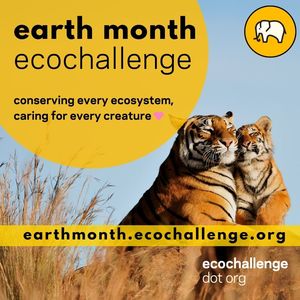 Jyothisree Boginni 4/22/2024 3:07 AMNice
Jyothisree Boginni 4/22/2024 3:07 AMNice
-
-
 SATHYA CHIMALAMARRI 4/20/2024 7:48 PMAir pollution is a pressing environmental issue that significantly impacts the health and balance of ecosystems worldwide. It refers to the presence of harmful substances in the air, primarily caused by human activities such as industrial emissions, vehicle exhaust, and burning of fossil fuels. Let’s delve into the detrimental effects of air pollution on ecosystems:
SATHYA CHIMALAMARRI 4/20/2024 7:48 PMAir pollution is a pressing environmental issue that significantly impacts the health and balance of ecosystems worldwide. It refers to the presence of harmful substances in the air, primarily caused by human activities such as industrial emissions, vehicle exhaust, and burning of fossil fuels. Let’s delve into the detrimental effects of air pollution on ecosystems:-
Effects on Vegetation:
- Damage to Leaves and Stomata: Air pollutants like sulfur dioxide (SO2), nitrogen dioxide (NO2), and ozone (O3) can damage plant leaves and stomata, affecting their ability to photosynthesize and take up nutrients.
- Reduced Growth and Productivity: High concentrations of pollutants inhibit photosynthesis, leading to stunted growth, reduced crop yields, and decreased overall productivity in plant communities.
- Altered Soil Chemistry: Airborne pollutants deposit on the soil, altering its pH and nutrient content, which negatively affects plant nutrient uptake and soil microbial communities.
-
Impact on Wildlife:
- Respiratory and Health Issues: Animals exposed to air pollution can suffer from respiratory problems, including inflammation, decreased lung capacity, and increased susceptibility to respiratory infections.
- Disruption of Food Chains: Pollutants deposited on vegetation can be ingested by herbivores, subsequently affecting their health. This disruption extends through the food chain, impacting predator populations.
- Habitat Degradation: Acidic deposition resulting from air pollution can lead to the degradation of aquatic habitats, affecting aquatic organisms and their dependent wildlife.
-
Ecosystem Imbalance:
- Biodiversity Loss: Air pollution contributes to the decline of various plant and animal species, leading to a loss of biodiversity. This disrupts ecological interactions and compromises the stability and resilience of ecosystems.
- Disruption of Pollination: Pollutants impair the reproductive systems of plants, impacting pollination processes and reducing the abundance of pollinators, such as bees and butterflies.
In summary, air pollution has far-reaching consequences, affecting both vegetation and wildlife, and disrupting the delicate balance within ecosystems. Efforts to reduce air pollution are crucial for safeguarding our planet’s health and biodiversity.-
 AKHIL MANDALAPU 4/29/2024 11:01 PMNice information and thanks for sharing!!
AKHIL MANDALAPU 4/29/2024 11:01 PMNice information and thanks for sharing!!
-
Effects on Vegetation:
-
 SATHYA CHIMALAMARRI 4/19/2024 12:07 AMWE LOVE NATURE !!! Nature is a part of who we are. So we should care for it as we care for our loved ones. Just living is not enough, one must also need the sunshine, sky, air, wind, food, water, oxygen. And all these are given to us by nature. So, we must protect nature as it is the backbone of our existence.
SATHYA CHIMALAMARRI 4/19/2024 12:07 AMWE LOVE NATURE !!! Nature is a part of who we are. So we should care for it as we care for our loved ones. Just living is not enough, one must also need the sunshine, sky, air, wind, food, water, oxygen. And all these are given to us by nature. So, we must protect nature as it is the backbone of our existence.-
 AKHIL MANDALAPU 4/29/2024 11:01 PMIt's True!!
AKHIL MANDALAPU 4/29/2024 11:01 PMIt's True!! -
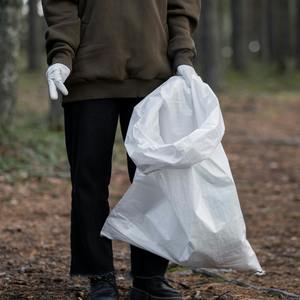 NITESH SEKHSARIA 4/19/2024 12:13 AMIndeed :)
NITESH SEKHSARIA 4/19/2024 12:13 AMIndeed :) -
 Tanisha Kakroo 4/19/2024 12:08 AMTrue
Tanisha Kakroo 4/19/2024 12:08 AMTrue
-
